Essential Oils and Probiotics
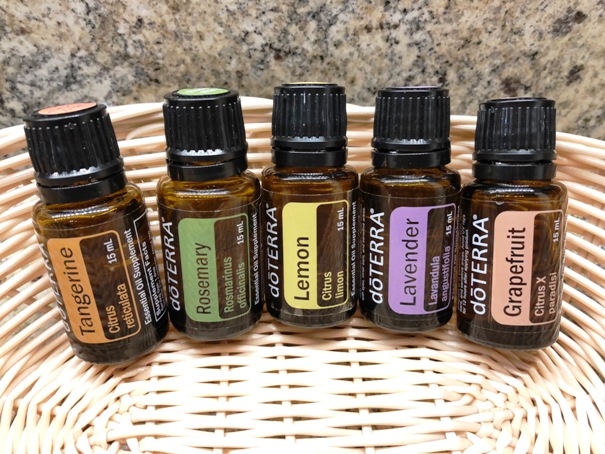 |
Essential oils and probiotics may seem like a weird combination, but they share similarities in ways that are discussed throughout this page. Both fit into a healthy lifestyle. In this article I am going to cover:
|
What Are Essential Oils? And What Is the Essential Oils and Probiotics Connection?
You may wonder why I include essential oils on this website about probiotics. Here's why: Every substance you eat, drink, breathe, touch or that otherwise impacts your body has to be metabolized and the unusable parts have to be eliminated. Some of those substances are toxic to the body, and the toxins that you come into contact with every day put extra stress on the body. When detoxification and elimination systems are stressed and compromised, negative health consequences can arise.
Essential oils may support those detoxification and elimination systems. Additionally, by replacing toxic personal and home products with essential oil-based products, you are reducing the total toxic load entering your body and the extra stress on those detoxification and elimination systems.
Your body organs such as your lungs, skin, kidneys, liver, colon and lymph are important detoxification and elimination systems in your body and each system has probiotics that support it. So by using essential oils and probiotics you are providing extra support to your body to enhance your health.
If you've read anything on this site, you know that I am a big fan of having a variety of plant foods in a person’s diet. That is because plants have amazing phytochemicals in them that you cannot get from other foods. Sure, you can take supplements of some phytonutrients, such as ECGC, but you will not get the synergistic effects of the entire green tea leaf. Sometimes supplements are necessary, but they should supplement – not replace – the whole foods in your diet. The same is true with essential oils and probiotics.
Essential oils are volatile oils found in plants (flowers, buds, leaves, stems, roots, or trees). Essential means that they contain the essence of a plant's fragrance and/or flavor. Volatile means that they rapidly evaporate. Essential oils are often used as flavorings (orange, lemon, peppermint, spearmint, etc.) or parts of flavorings in foods you buy, as the inspiration for colognes and perfumes, and in personal care products, many of which unfortunately may contain undesirable ingredients.
When you think of the word oils, you may think of liquid fats, such as olive oil, avocado oil, etc., but those oils are called fixed oils and are different from essential oils. Both kinds of oils are not soluble in water. Essential oils form a type of communication in plants, with each other and with insects. You may have heard about citronella oil as an insect repellent.
Most essential oils are steam distilled from the plant part, although some, particularly citrus oils, are cold-pressed from the peel. In the time-consuming steam distillation process, water is boiled, creating steam that is passed through the plant material. Then, the steam carries the aromatic compounds from the plant to a collection tube where the steam cools and turns back into water. From there, a pure, clean essential oil can easily be separated from the water.
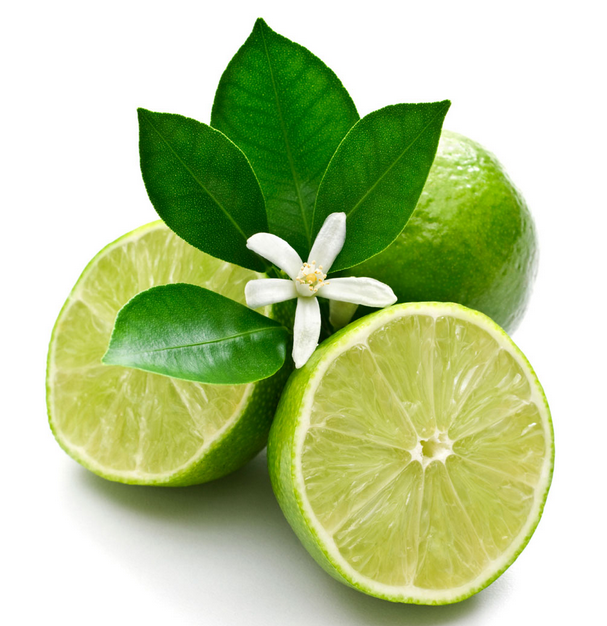 Photo courtesy of dōTERRA |
In cold-pressing, mechanical pressure squeezes the essential oil from the rind of the citrus fruit—producing a pure and potent citrus oil. Cheaper quality oils may be extracted using chemical solvents, leaving chemical-solvent residues in the oils. |
Plants that produce
essential oils are found in many species and throughout the world. Most
are localized to certain areas, and although they may be able to be
cultivated elsewhere, the indigenous ones typically have the best oil
profile for plant survival and thriving due to the proper humidity, soil
condition and sustainability practices.
The major chemical
components of essential oils include monoterpenes, esters, aldehydes,
ketones, alcohols, phenols, and oxides. There is no need to memorize
that information, as you’ll learn about them as your knowledge grows.
Essential oils are complex mixtures of chemicals substances, and
although one or two constituents may be attributed to have a certain
effect, it is the whole essential oil that matters. Like the whole plant
as a source of food, the whole essential oil is desirable for
synergistic effects that cannot be duplicated by making a single,
isolated, chemical. Essential oils and probiotics are similar in this
regard in that the sum of the individual oil constituents or probiotic
species is less than the value of the whole due to synergy.
It should also be noted that although essential oils are powerful, and may be 50-70 times more powerful than herbs, the oil itself does not contain the entire spectrum of helpful compounds in the whole herb.
Thus, it is beneficial to use both whole herbs and essential oils, just
as it is beneficial to eat and drink naturally cultured or fermented
foods and drinks and to complement them with probiotic supplements.
Another way that essential oils and probiotics are linked is that essential oils, in general, support beneficial microbes such as probiotics and work against pathogenic microbes such as Salmonella. Many essential oils can inhibit or disable pathogenic bacteria, fungi and viruses. Of course, the specific actions of an oil are specific to that oil and some are more broad-spectrum than others. Essential oils and probiotics share more connections than one might think at first glance.
How to Use Essential Oils
I have been using essential oils aromatically, topically, and even internally (particularly peppermint and ginger, when needed) for many years, sticking with basic ones that I read about. Essential oils were part of my health endeavors. I never knew there was so much published research on so many different essential oils until I did the research! When I delved into published research to understand essential oils and the mechanisms involved in their use, I learned that what I was doing was only the beginning for essential oil potential. There are four ways to use essential oils, and not all oils can be used in all four ways:
- Aromatically
- Topically
- Internally
- Environmentally
Aromatic use means that the oil is either sniffed from the bottle or plant or the oil is diffused with water in an ultrasonic diffuser. A diffuser emits tiny particles of the oil and water into the air so it can disperse. Essential oils should never be used in a heated appliance.
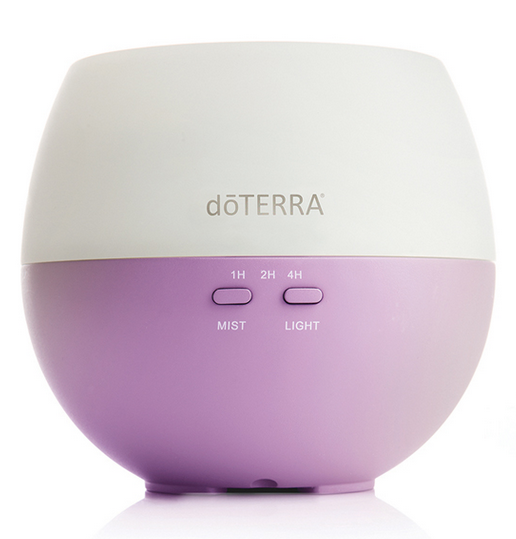 |
If you have been using typical air fresheners, please throw those out!
You are exposing yourself to numerous toxins, including estrogen-like
chemicals. Essential oils, particularly the oils I use, do not contain
toxins and are third-party tested to ensure that they are safe and
therapeutic. Buy a nice diffuser to use instead or use a spray bottle. |
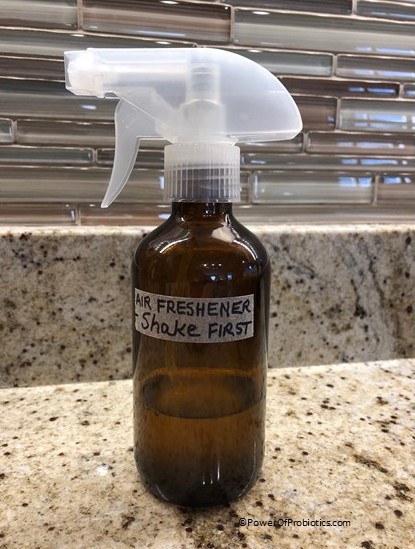

Topical use means that the oil is used on the skin. Essential oils and probiotics (and/or their metabolic products) may be used topically. While some oils may be used "neat", that is, undiluted, there are some oils that can burn the skin if not diluted properly. Oils such as cassia, cinnamon, clove, geranium, lemongrass, oregano and thyme should be diluted at a starting ratio of 1 drop of EO to 5-10 drops of fractionated coconut oil, almond oil, jojoba oil, etc. The oil's product information should state whether it can be used neat, sensitive (for young or sensitive skin), or should be diluted for everyone prior to topical use.
If there is any doubt as to if you are sensitive to an oil, start by diluting it for the first use.
The reason for dilution of essential oils is two-fold: one, to prevent skin sensitization and/or burning; and two, to allow the oil to slowly enter the body at a more even rate so that its benefits can be felt over a longer period of time. Essential oils applied to the skin eventually reach the blood circulation and are processed by the liver. When processed, the individual compounds in the oils are broken down into metabolites to eventually be eliminated through urine, stool, the skin or exhaled from the lungs. Topical oils are typically applied a few times per day in acute situations.
Topical oils can also be used in hand soaps, shampoos, lotions, after-shave products, etc. There is a caution with topical use of some oils, particularly the citrusy ones, because a constituent in the oil may cause your skin to burn faster when exposed to sunlight (photosensitivity). It is best to stay out of the sun and away from tanning beds for at least 12 hours when using AromaTouch, Bergamot, dōTERRA Breathe, dōTERRA Cheer, Citrus Bliss, Elevation, dōTERRA Forgive, Grapefruit, InTune, Lemon, Lime, dōTERRA Motivate, dōTERRA On Guard, Purify, Slim & Sassy, Wild Orange, and Zendocrine. The oil product information should clearly state this precaution, and dōTERRA's information does.
Essential oils are generally safe to apply anywhere on your skin, but there are certain areas that should be avoided. Don't apply oils on or near the inside of the nose, the inner ear, the eyes, broken skin, or other sensitive areas.
If your skin begins to turn red, itch, or burn after applying an oil, remove the oil from the skin by gently wiping the area with a soft cloth, then alternate between adding a carrier oil like Fractionated Coconut Oil and gently wiping the area.
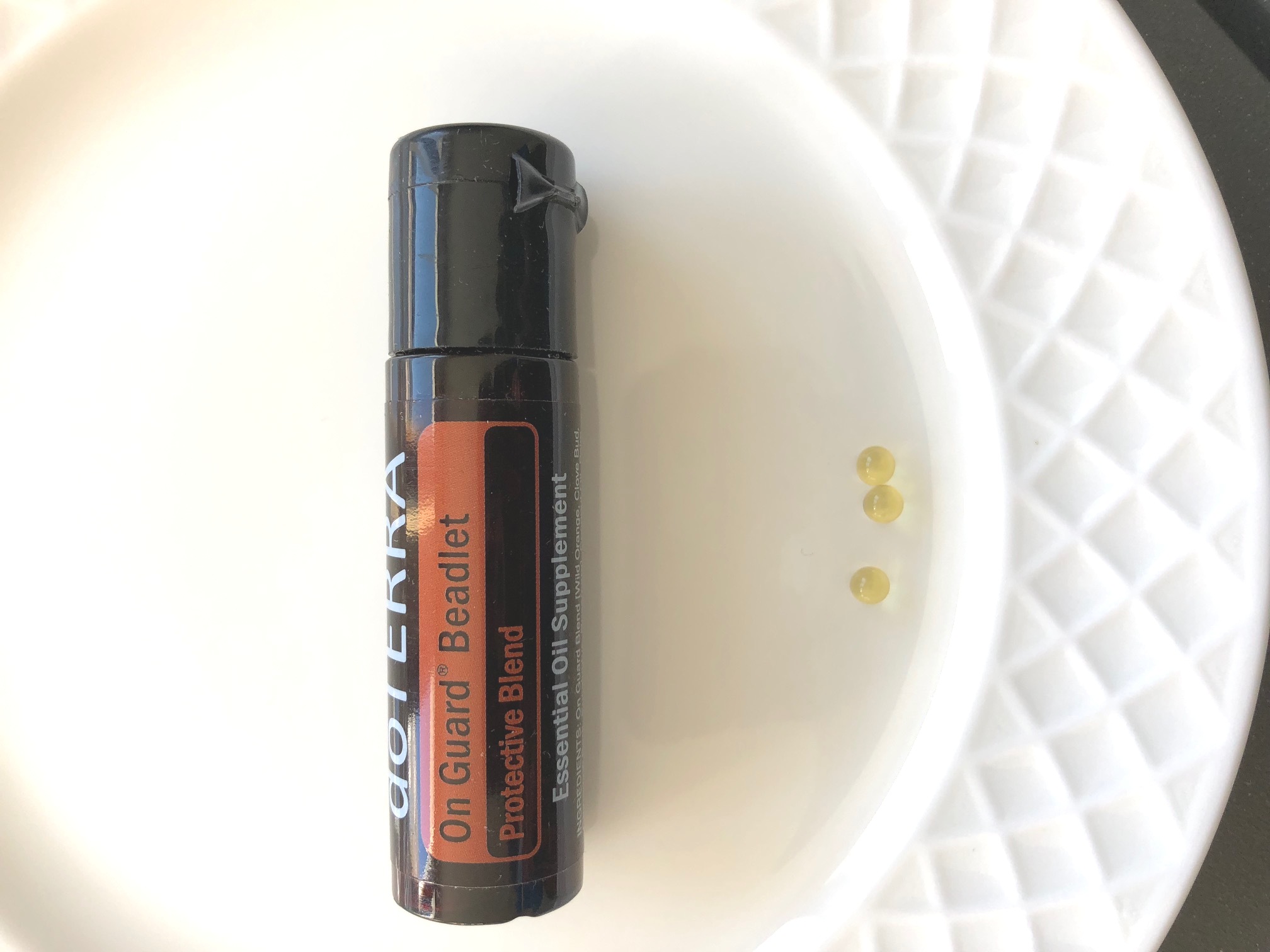 |
Internal use of both essential oils and probiotics may be done, but neither has inconsequential effects. Just as probiotics can influence the gut microbiome, so can essential oils, if taken in adequate amounts. Essential oils should be limited to those that are generally safe to use and not toxic at recommended dosages. |
Some essential oils should not be taken internally because they contain ingestible toxins. The only brand I trust, for all routes of oil exposure, and I explain why on the page about purchasing quality oils, is dōTERRA. If a dōTERRA essential oil has a Nutrition Facts Label, you know that it is safe to be taken internally. A drop or two is all you need at one time, and you can add the drop(s) to a fizzy or oil-containing beverage or place it in an empty capsule and swallow it. You also can buy the oils prepared in gel caps. Whether or not you should take it internally depends on the oil and your circumstance, in my opinion.
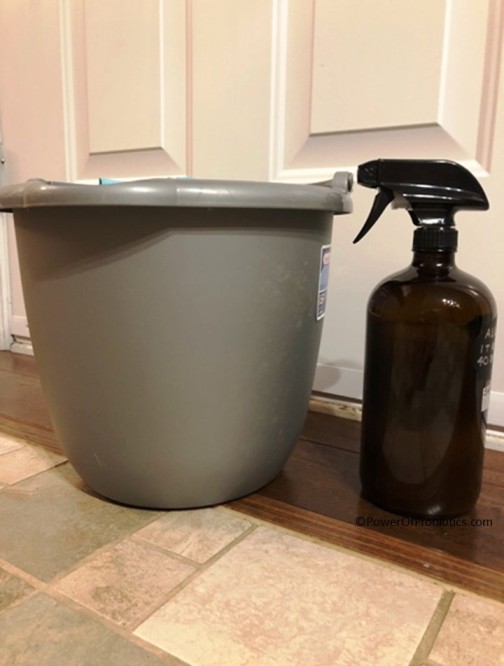 |
Environmental use of oils means using them to clean or as weed killers, for example. I added this as an extra category of use of essential oils to remind people that they are effective environmentally. There is no need for common cleaning household products that have adverse health reactions or harsh environmentally-damaging weed killers to be used in every instance. |
I will share recipes on how to use essential oils for aromatic uses, topical uses, internal uses and environmental uses on this website, through social media and through my newsletter. You will learn how to use them over time, learn about their safety, and understand how to replace the over-the-counter medicines and household products in your cabinets to reduce your toxin load and enhance your health.
Essential oils are generally safe to use, but should be treated with respect, as they are very potent. Just because a little bit works effectively does not mean that using more will make it more effective! Also, be sure that they are only used under adult supervision and kept out of the reach of children and pets. Explain proper use of a children's roller bottle to your child before allowing them to control its use. Using both essential oils and probiotics as they are intended will yield maximum results with minimal discomfort.
Remember, essential oils are not drugs and are not meant to treat or cure any condition. Essential oils and probiotics both work to support the body so it can balance itself and restore health.
How to Purchase Quality Essential Oils
To know which essential oils I personally purchase, why they are superior to other oils, and how you can purchase them, please see this page.
My Web Pages on Research on Essential Oils
My focus for this website is probiotics and the microbiome, but since essential oils and probiotics can both affect the microbiomes in different body areas and their functions, I am going to share what I have learned over time. I will add more information on the research, giving priority to those that have connections between essential oils and probiotics and the gut. For now, here are the published pages containing information on single oils and blends:
- Grapefruit essential oil for weight loss and other health benefits
- Lavender essential oil for anxiety and sleep
- OnGuard for protection against environmental threats
Go to page on purchasing essential oils.
Go to health benefits page.
Go to Homepage.
I research studies and share my clinical experience to write this free site to help you find solutions to your problems. As part of that, I recommend products and services that I genuinely believe will be of help to you. If you click on a link to a product/service, I may receive a small commission to support my efforts if you buy something. The item does not cost you more.
Thanks for visiting this site! If you've enjoyed reading this page or have found the information to be useful to you, please "like", tweet about it, or share it so others can benefit, too. You can leave comments below via Facebook or Disqus.
Comment with Disqus (including as a guest), Twitter or Google accounts:
If you are one of my many readers without a Facebook account, you can still comment.
Disclaimer: Please note: By law, I cannot provide any personalized recommendations for your specific health concern on this site. The information contained in this site is educational in nature and is not intended as diagnosis, treatment, prescription or cure for any physical or mental disease, nor is it intended as a substitute for regular medical care. Consult with your doctor regarding any health or medical concerns you may have.
Subscribe to my monthly newsletter and receive a free copy of "How to Use Probiotics to Lose Weight and Be Healthier".

To comply with the EU's GDPR data privacy regulation, please subscribe here:
Looking for some quality professional supplements, including probiotics? Check out my online dispensary, as I will be doing reviews of some of these products in the future. Click on the Fullscript picture. (Note: If you were a former Wellevate customer, please switch to Fullscript for a better customer experience. Thanks!)
Some competitors of SBI (Solo Build It) are posting fake negative reviews of SBI. If you are considering creating your own website business, or if you have a brick-and-mortar business but want an online presence, I highly recommend SBI!



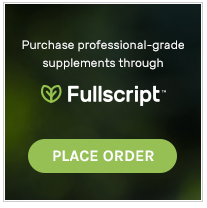

Comment with Facebook!
I'd love to hear your opinion about what you just read. Leave me a comment in the box below! Other commenting options follow the Facebook comments.